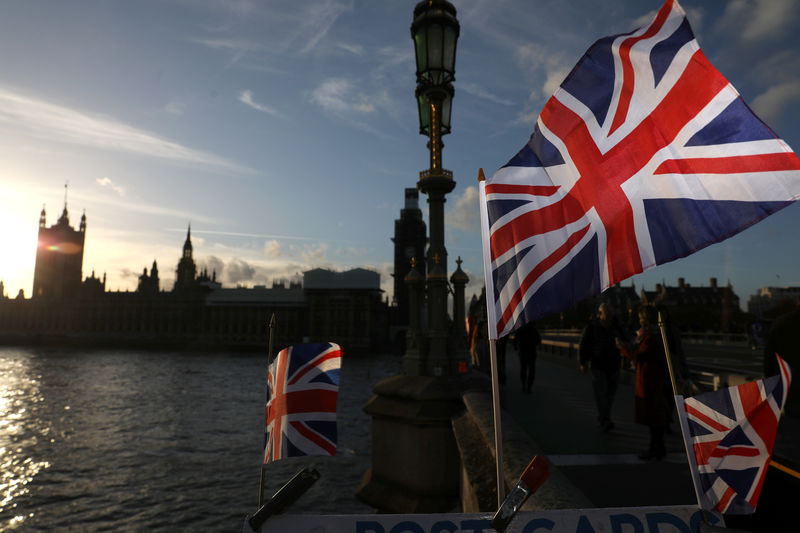(Bloomberg Opinion) -- Pushing Britain’s deadline for exit from the European Union to the end of October answers none of the questions that have been torturing the country for three years. The new schedule removes the immediate risk of an unintended no-deal Brexit, which would otherwise have occurred today. That’s something. But it sheds no light on what needs to happen instead.
Fatigue with every aspect of this farcical process is now so total that any plan that lets Britain move on looks appealing. Trouble is, no such plan is available.
Prime Minister Theresa May means to keep talking to the Labour opposition, building support for a lightly tweaked version of the withdrawal deal she’s reached with the EU. She hopes Britain will leave on her terms well before the new deadline — quickly enough to avoid having to contest next month’s European parliamentary elections. She knows that Labour’s objections to her deal are more tactical than substantive — an effort to disguise the fact that Labour MPs are as deeply split on Brexit as the Tories are.
In the end, Remainers and Leavers alike might settle for May’s flawed plan out of sheer exhaustion. But as Britain starts negotiations about its future trade relationship with the EU — which May’s plan doesn’t settle — their quarrel will intensify. Instability and uncertainty will continue to tax the economy. And Europe won’t be able to safely stand aloof, least of all if the U.K. contests the EU elections, because it has compelling economic and diplomatic interests in good relations with Britain.
Extending the Brexit deadline, with no new clarity on where this process is heading, should therefore not be greeted as a relief. It should be recognized as confirmation, if any were needed, that the Brexit project has collapsed. It cannot be patched to anybody’s satisfaction. It needs to be abandoned.
Many and perhaps most of Britain’s MPs would agree with this assessment, but they feel too constrained to deny it. They consider themselves bound by the 2016 referendum, fearing backlash from angry Leavers if they say anything else.
The issue should therefore be put back to the people. There’s no principled case against calling a second referendum — an idea Labour has lately been flirting with. The past three years have told voters things they didn’t know back in 2016. They now have some idea of what Brexit would mean, and what they have to lose if this ill-conceived venture goes ahead. In these circumstances, democratic legitimacy doesn’t just permit a second popular vote; it demands it.
Granted, the result of a second vote is far from certain. That’s partly because so many British politicians have settled for pandering to their noisiest constituents rather than saying plainly what their own best judgment recommends. They should wake up to their responsibility to serve their constituents’ interests, even if it puts their jobs on the line. It’s unconscionable that a pro-Remain Parliament should occupy itself with endless pointless maneuvering as this disaster unfolds.
Ideally Parliament would simply admit defeat and call a new referendum on that basis. But if Britain’s MPs are persuaded, one way or another, to support May’s plan or something similar, they should require that it be put to a popular vote, with Remain as an option on the ballot. Then they should finally tell their constituents the truth.
This pause offers Britain its last, best chance to reverse a grave mistake. History won’t look kindly on politicians who choose not to seize it.
—Editors: Clive Crook, Mary Duenwald.
To contact the senior editor responsible for Bloomberg Opinion’s editorials: David Shipley at davidshipley@bloomberg.net, .
Editorials are written by the Bloomberg Opinion editorial board.
©2019 Bloomberg L.P.
